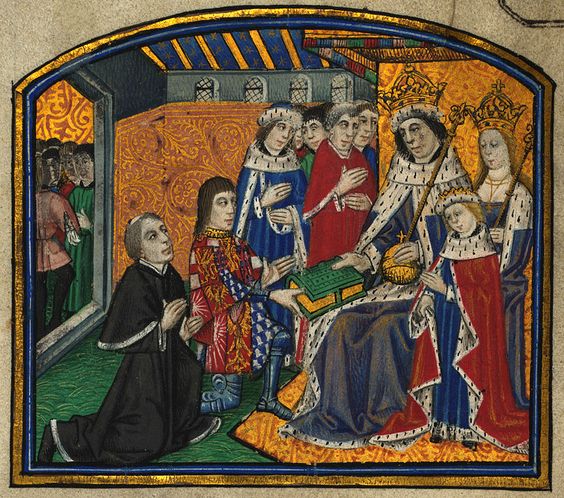12th May 2017
A hugely exciting find – rare pages printed by William Caxton have been discovered at the University of Reading. There are no other known surviving copies of these pages, so they are truly one of a kind. This is reflected in their estimated value – up to £100,000. These unique pages are currently on display at Reading University’s Museum of English Rural Life until 30th May.
The pages are from a book called the Sarum Ordinal, a religious text written in Latin. They are believed to have been among the earliest books printed by Caxton in England in 1476 or 1477. The only other fragments of this book that survive are eight leaves held by the British library.
Printing had been introduced to England by Caxton himself, after learning the art in Europe. His translation of The Recuyell of the Histories of Troy to English from French was the first book to be printed in the English language. The Play of Chess is another of his translations that he printed – which was dedicated to George, Duke of Clarence and brother to Edward IV.
Caxton had many high-ranking sponsors. He was a Yorkist, and had been a member of the household of the Duchess of Burgundy, Margaret of York, before he became a printer. The Woodvilles were among his patrons. Anthony Woodville sponsored the first book published in England, Chaucer’s Canterbury Tales, and his translation of Dictes or Sayengis of the Philosophres was later published by Caxton. Elizabeth Woodville also had a hand in this, having read the book in its early stages and suggesting some editorial changes. Caxton even dedicated his edition of The History of Jason to Elizabeth’s eldest son, Edward – one of the princes in the tower. After the death of Edward IV, Caxton appeared to remain loyal to Elizabeth.
What makes the finding of these pages even more remarkable is that they were discovered at all. At one point, the pages had been pasted into another book to reinforce its spine. It is understood they were rescued by a librarian at the University of Cambridge in 1820 who did not realise their significance. It is only recently, when a librarian at the University of Reading was cataloguing items, that they were recognised for what they are. A truly unexpected and wonderful discovery.
http://www.reading.ac.uk/news-and-events/releases/PR725199.aspx
Image: Rivers & Caxton Presenting book to Edward IV and Elizabeth Woodville, c.1480, presentation miniature from Dictes and Sayings of the Philosophers via Wikimedia Commons
